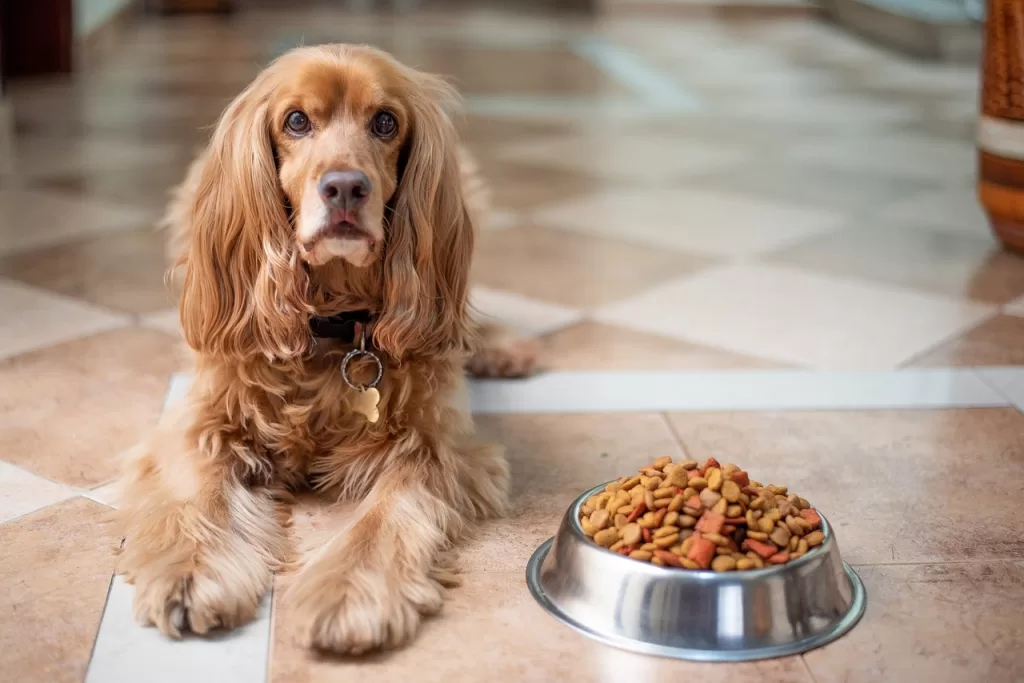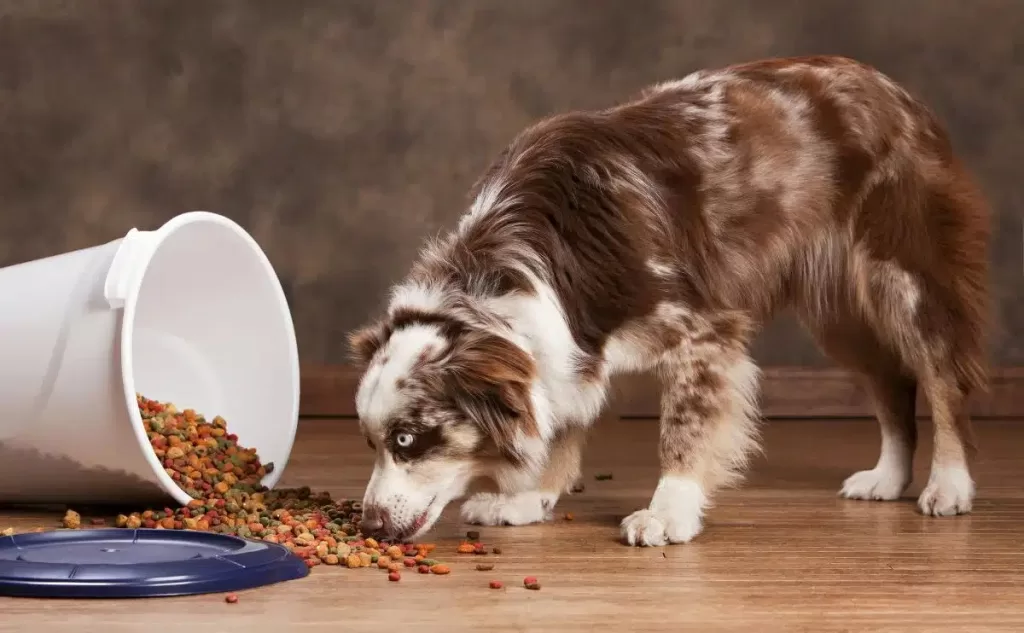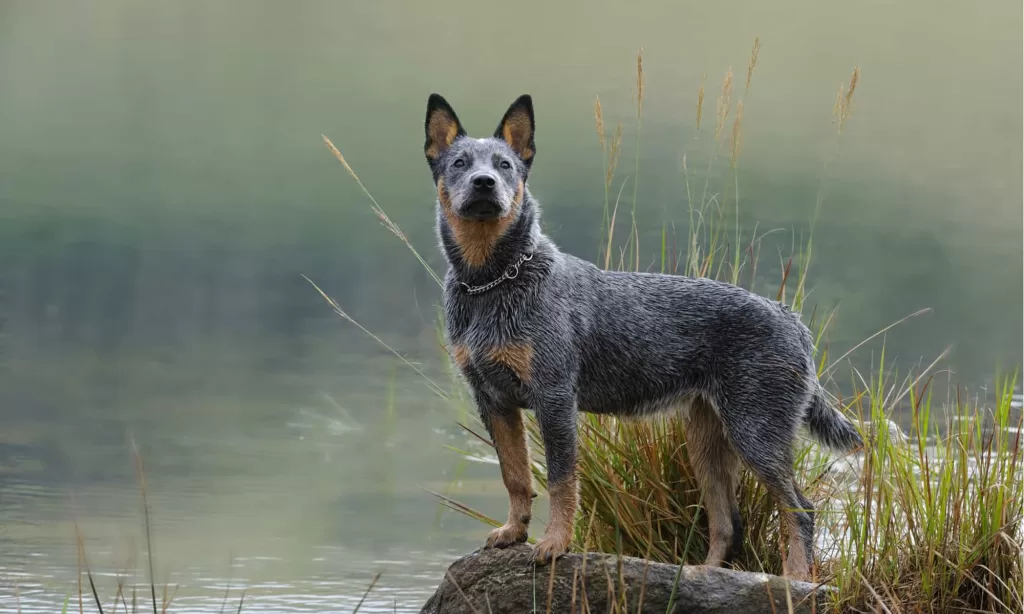How to Choose Foods for American Cocker Spaniel? American Cocker Spaniels are beloved companions known for their affectionate nature and charming personality. As a responsible pet owner, providing your Cocker Spaniel with a balanced and nutritious diet is crucial for their overall health and well-being. In this article, we will explore the essential aspects of selecting the right foods to ensure your furry friend stays happy and healthy throughout their life.
- How to Choose Foods for American Cocker Spaniel
- Understanding the American Cocker Spaniel's Nutritional Needs
- Essential Nutrients for American Cocker Spaniels
- Foods to Include in Your Cocker Spaniel's Diet
- Foods to Avoid Giving Your Cocker Spaniel
- Understanding Special Dietary Considerations
- Feeding Schedule and Portion Control
- The Role of Supplements in Your Cocker Spaniel's Diet
- Hydration and Water Needs
- Introducing New Foods and Treating Training
- Grooming and Nutritional Support
- Regular Veterinary Checkups and Diet Adjustments
- Conclusion
- FAQs
How to Choose Foods for American Cocker Spaniel
[toc]

Understanding the American Cocker Spaniel’s Nutritional Needs
The Importance of a Balanced Diet for Your Cocker Spaniel
A well-balanced diet is the foundation of good health for any dog, and Cocker Spaniels are no exception. Their diet should contain the right balance of proteins, fats, carbohydrates, vitamins, minerals, and water.
Identifying Specific Dietary Requirements
Different life stages and individual health conditions may influence your Cocker Spaniel’s dietary requirements. Puppies, adult dogs, and seniors have distinct nutritional needs, as do dogs with specific health issues.
Potential Health Issues Related to Diet
The food your Cocker Spaniel consumes plays a significant role in their health. Poor dietary choices can lead to obesity, allergies, and other health problems. Providing the right nutrients can help prevent or manage such issues.
Essential Nutrients for American Cocker Spaniels
Proteins: Building Blocks of a Healthy Diet
Proteins are essential for maintaining your Cocker Spaniel’s muscle mass and supporting their overall growth and development. High-quality animal-based protein sources should be the primary component of their diet.
Fats: Providing Energy and Essential Fatty Acids
Healthy fats are an excellent source of energy for active Cocker Spaniels. Additionally, fats contain essential fatty acids that promote healthy skin, a shiny coat, and overall well-being.
Carbohydrates: A Source of Vital Energy
Carbohydrates provide the necessary energy for your Cocker Spaniel’s daily activities. Opt for complex carbohydrates from whole grains to ensure sustained energy levels.
Vitamins and Minerals: Supporting Overall Health
Vitamins and minerals are vital for various metabolic processes and immune system support. A well-balanced diet with a variety of fruits and vegetables can provide these essential nutrients.
Water: Keeping Your Cocker Spaniel Hydrated
Water is fundamental for your Cocker Spaniel’s health. Ensure they have access to fresh, clean water at all times to prevent dehydration.
Foods to Include in Your Cocker Spaniel’s Diet
High-Quality Commercial Dog Foods
High-quality commercial dog foods are designed to meet your Cocker Spaniel’s nutritional needs. Look for reputable brands that use real animal proteins and limited fillers.
Reading Dog Food Labels for Nutritional Information
Understanding how to read dog food labels will help you make informed choices. Look for foods with named meat sources, appropriate protein-to-fat ratios, and minimal additives.
Homemade Dog Food: Pros and Cons
Cooking homemade dog food can be a rewarding experience, but it requires careful planning to meet all of your Cocker Spaniel’s nutritional requirements.
Fresh Fruits and Vegetables as Healthy Treats
Certain fruits and vegetables, such as carrots and blueberries, can serve as healthy and tasty treats for your Cocker Spaniel.
Safe Protein Sources for Your Cocker Spaniel
Incorporate lean meats like chicken, turkey, and fish into your Cocker Spaniel’s diet as safe and nutritious protein sources.
Foods to Avoid Giving Your Cocker Spaniel
Toxic Foods That Can Harm Your Cocker Spaniel
Some human foods can be toxic to dogs, including chocolate, onions, grapes, and certain nuts. Always keep these foods out of your Cocker Spaniel’s reach.
The Dangers of Xylitol in Some Foods
Xylitol, a sugar substitute found in certain foods, can be extremely toxic to dogs, including Cocker Spaniels. It’s commonly found in sugar-free gum, candy, and some baked goods. Ingesting even small amounts can lead to a rapid release of insulin, resulting in dangerously low blood sugar levels and potential liver failure.
Understanding Special Dietary Considerations
Food Allergies and Sensitivities in Cocker Spaniels
Cocker Spaniels, like any other breed, may develop food allergies or sensitivities. Common signs of food allergies include itching, skin rashes, ear infections, and gastrointestinal issues. If you suspect your Cocker Spaniel has food allergies, consult your veterinarian for proper testing and dietary adjustments.
Common Signs of Food Allergies
Food allergy symptoms in Cocker Spaniels can manifest in various ways. Pay attention to any changes in their skin, coat, or behavior after eating certain foods.
Transitioning to a New Diet Gradually
When introducing a new diet to your Cocker Spaniel, do so gradually to prevent digestive upsets. Mix small amounts of the new food with their existing food and slowly increase the proportion over several days.
Feeding Schedule and Portion Control
Establishing a Consistent Feeding Routine
Maintaining a consistent feeding schedule is essential for Cocker Spaniels. Set regular meal times to help establish a healthy eating pattern.
Determining the Right Portion Size for Your Cocker Spaniel
Portion control is vital to avoid overfeeding, which can lead to obesity and related health problems. The appropriate portion size depends on your dog’s age, size, activity level, and overall health.
Avoiding Overfeeding and Obesity
Obesity is a common health issue among Cocker Spaniels, and it can lead to various health problems, including joint pain and heart issues. Use treats sparingly and avoid overfeeding.
The Role of Supplements in Your Cocker Spaniel’s Diet
When and Why to Consider Supplements
While a well-balanced diet should provide most of the essential nutrients, some Cocker Spaniels may benefit from supplements. Talk to your vet before giving your dog any supplements to ensure they are safe and necessary.
Joint Supplements for Aging Cocker Spaniels
As Cocker Spaniels age, they may experience joint stiffness and arthritis. Joint supplements containing glucosamine and chondroitin can help support their joint health.
Omega-3 Fatty Acid Supplements for Healthy Skin and Coat
Omega-3 fatty acids are beneficial for skin and coat health. Supplements like fish oil can improve the condition of your Cocker Spaniel’s skin and give their coat a lustrous shine.
Hydration and Water Needs
Keeping Your Cocker Spaniel Hydrated
Ensure that your Cocker Spaniel has constant access to fresh, clean water. Proper hydration is crucial for their overall health and well-being.
Monitoring Water Intake
Monitor your Cocker Spaniel’s water intake to ensure they are drinking an adequate amount. Changes in water consumption could be an indication of health issues.
Introducing New Foods and Treating Training
Gradual Introduction of New Foods
When introducing new foods to your Cocker Spaniel’s diet, do so gradually. This approach will help you identify any potential allergic reactions or sensitivities.
Using Treats Effectively in Training
Treats can be a valuable tool in training your Cocker Spaniel, but use them judiciously. Opt for healthy treats and be mindful of the calorie content to avoid over-treating.
Grooming and Nutritional Support
Coat Health and Nutrition
A healthy diet plays a significant role in the condition of your Cocker Spaniel’s coat. Proper nutrition can promote a soft, shiny, and luxurious coat.
Nutritional Supplements for Coat Shine and Strength
In addition to a well-balanced diet, certain nutritional supplements can contribute to your Cocker Spaniel’s coat health, giving it an extra shine and strength.
Regular Veterinary Checkups and Diet Adjustments
The Importance of Regular Checkups
Regular visits to the veterinarian are crucial for monitoring your Cocker Spaniel’s overall health. Your vet can help you assess your dog’s diet and make any necessary adjustments.
Consulting Your Vet for Diet Changes
Before making any significant changes to your Cocker Spaniel’s diet, consult your vet. They can offer valuable advice tailored to your dog’s specific needs and health conditions.
Conclusion
Choosing the right foods for your American Cocker Spaniel is essential for their health, happiness, and longevity. A balanced diet that meets their nutritional needs, along with proper hydration, can ensure they thrive throughout their life. Remember to avoid harmful foods, consider any special dietary requirements, and monitor their weight and health regularly. By providing them with the best nutrition, you’ll be rewarded with a vibrant and joyful companion.
FAQs
Is it safe to give my Cocker Spaniel bones as treats?
No, it’s not safe to give your Cocker Spaniel bones as treats. Cooked bones can splinter and cause serious injuries to your dog’s mouth, throat, or digestive system. Stick to safe and appropriate treats designed for dogs.
Can Cocker Spaniels eat human food occasionally?
Some human foods are safe for Cocker Spaniels in moderation, but many are not. It’s best to avoid giving them table scraps, as some human foods can be toxic to dogs. Stick to dog-safe treats and foods.
How often should I feed my Cocker Spaniel?
The frequency of feeding depends on your Cocker Spaniel’s age and activity level. Puppies may need to be fed more frequently, while adult dogs can usually eat two meals a day.
Should I feed my Cocker Spaniel a raw food diet?
The decision to feed your Cocker Spaniel a raw food diet should be made after consulting with your veterinarian. Raw diets can carry health risks, and it’s essential to ensure the diet is balanced and safe.
Can I feed my Cocker Spaniel the same food as my other pets?
Different pets have different dietary needs, so it’s not advisable to feed them all the same food. Each pet should have a diet tailored to their specific nutritional requirements. Consult your vet for guidance on each pet’s diet plan.



